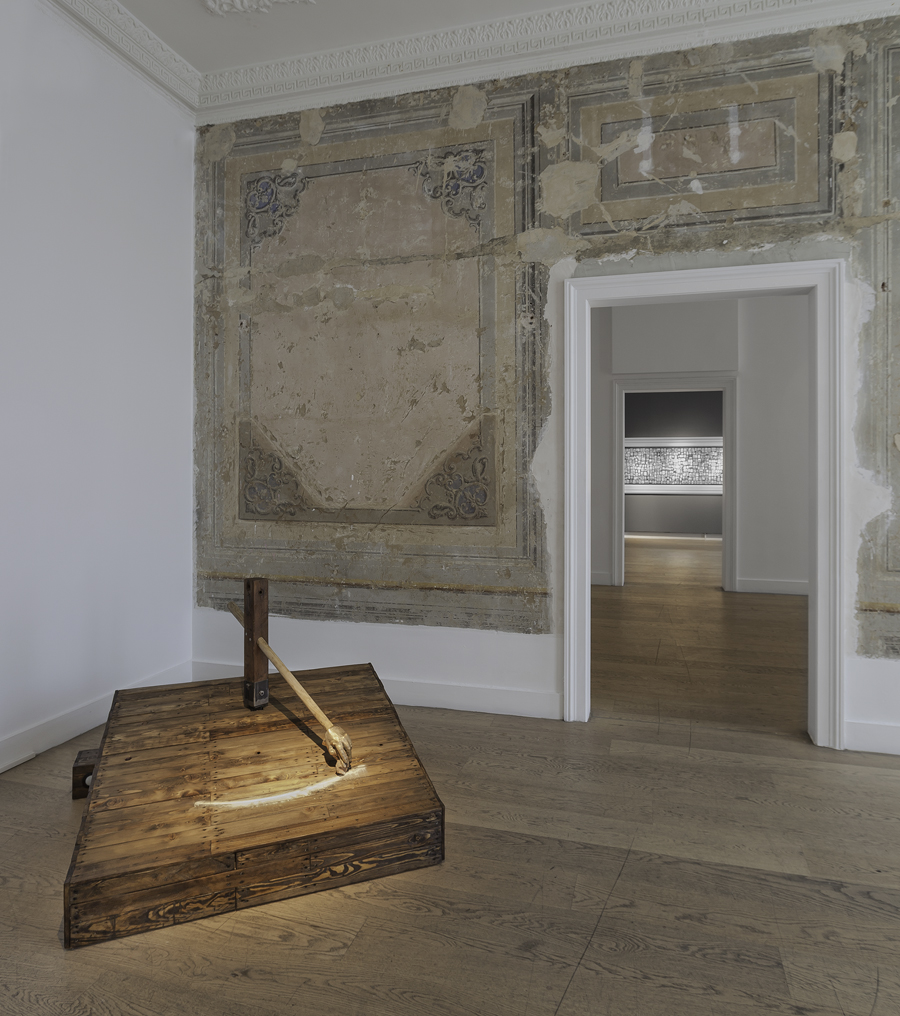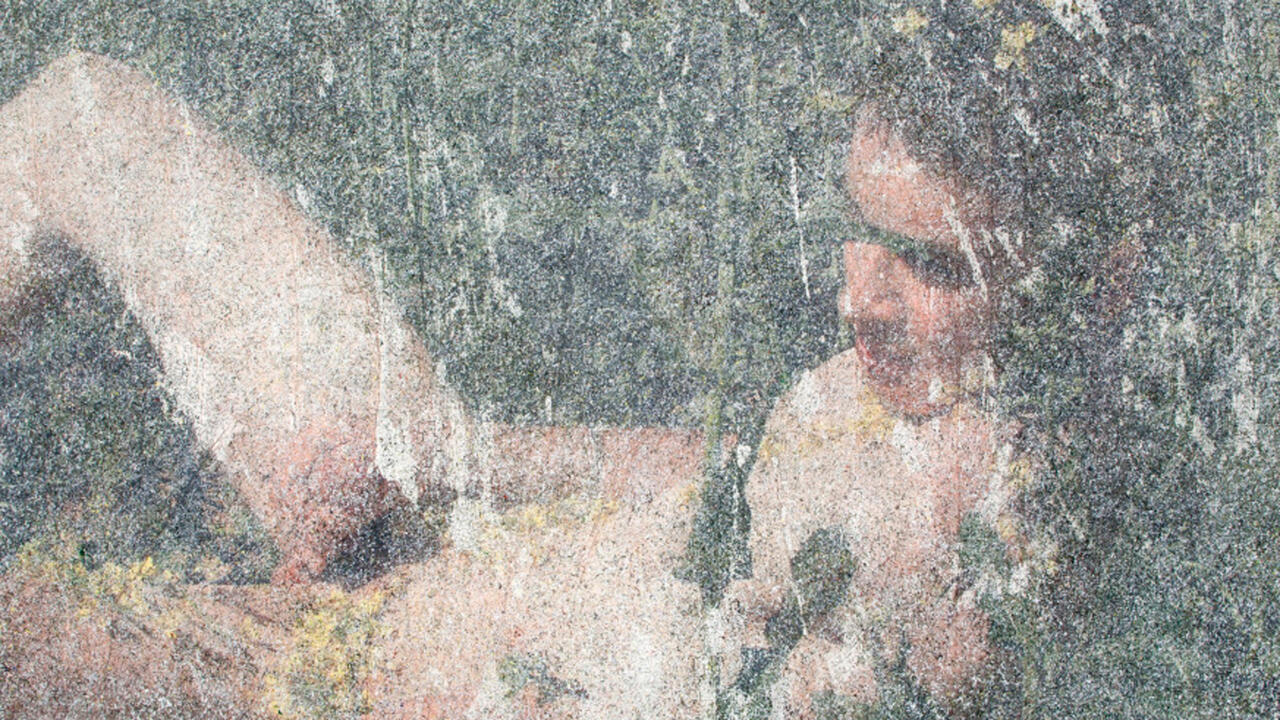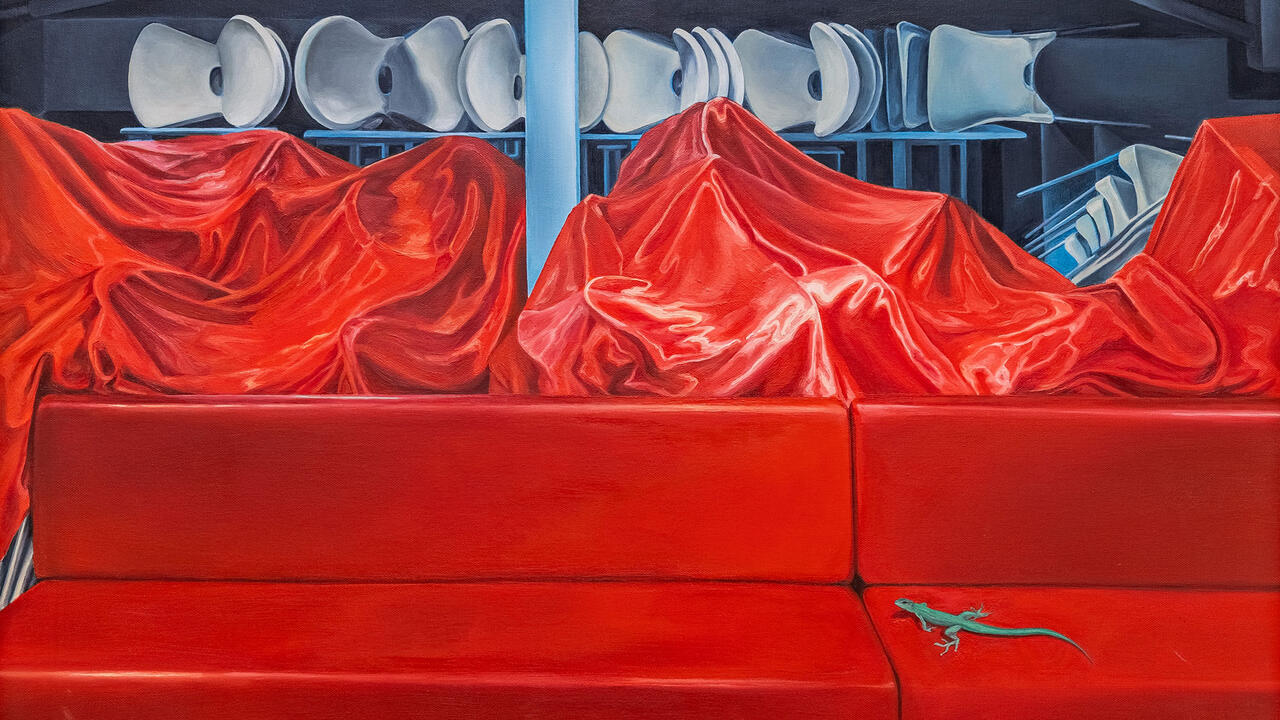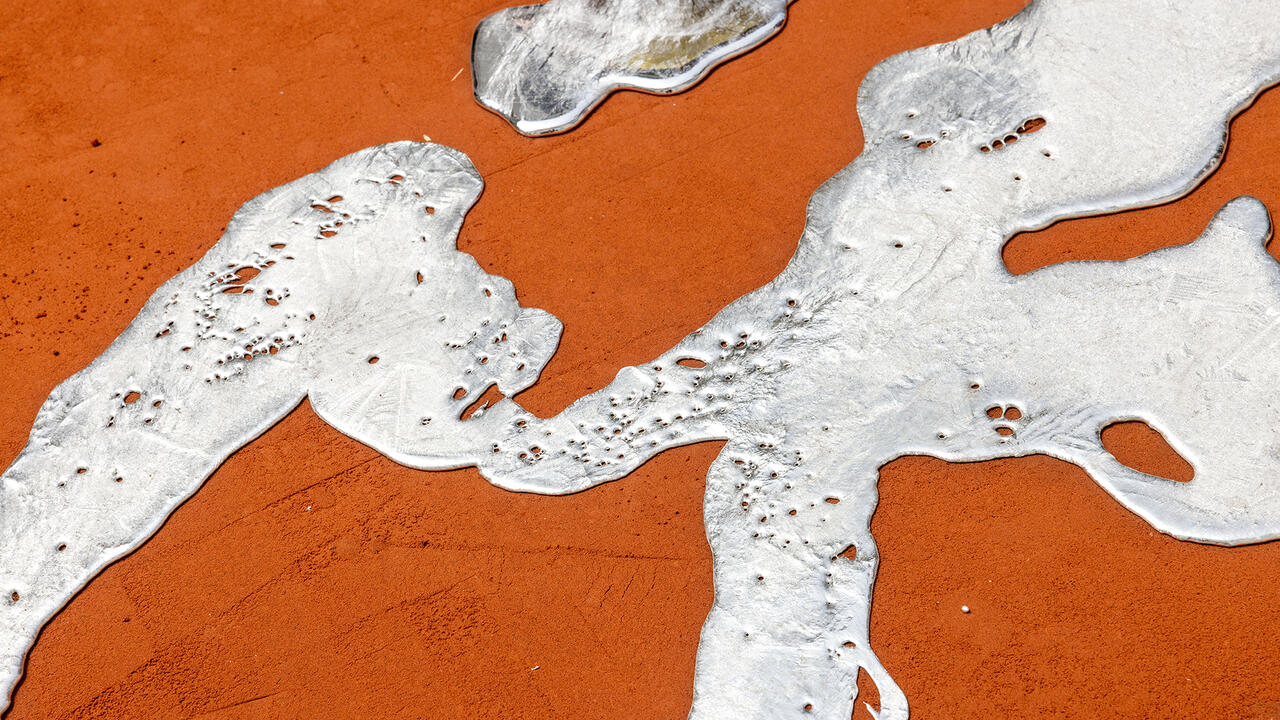All the Light We Cannot See
Galerist, Istanbul, Turkey
Galerist, Istanbul, Turkey

‘All the Light We Cannot See’ is not intended as a reference to the all-too-frequent electricity cuts that have plagued Istanbul since the Turkish government voted last September to no longer follow daylight saving time. However, it is likely to be read as such. The actual reference – to Anthony Doerr’s eponymous historical novel – is only briefly mentioned in the rather opaque exhibition text. Whilst not wholly successful in its stated aim of ‘creat[ing] an intuition about “light” as a metaphor for memory, future, knowledge, insight and hope’ (whatever that might mean), this show presents four critically engaged, young Istanbul-based artists working with the politics of memory and identity.

The exhibition is essentially four solo statements, neatly separated from each other within Galerist’s fin-de-siècle interior. Hera Büyüktaşçıyan’s two works, An Unending Longitude and The Geo-Graphers (both 2016), consider how memory is socially constructed. In the former, a kinetic sculpture, one bronze hand held by another uses a piece of brick to draw a circular line on wooden planks. The image of the guiding hand summons, for anyone educated in Turkey, the image of Mustafa Kemal Atatürk introducing the new Latin alphabet to the masses in 1928, but the white line in Büyüktaşçıyan’s work gradually disappears into the wood due to friction. In the latter work, a three-panel drawing, shows faceless pool cleaners (after real ones that the artist encountered at the Golden Temple in Amritsar, India) above mounds of books. During a walkthrough, the artist claimed that, no matter how meticulously the figures cleaned, they would leave traces of some kind: what she called ‘mnemonic sediments’, built up in the history of the space. For Büyüktaşçıyan, an act of inscription can be an act of erasure and vice versa.

Burcu Yağcıoğlu and TUNCA’s works similarly address erased or fragmented memory. Yağcıoğlu’s two large-scale drawings in cast-cement neo-classical frames reconcile the ludic gesture behind Robert Rauschenberg’s Erased de Kooning Drawing (1953), with a Monika Baer-esque aesthetic, in which off-scale tigers, flames and retaining walls populate the picture plane with a vaguely articulated negative space between them. TUNCA, on the other hand, presents a wall of charcoal-drawn reproductions of photographs of prisoners in Auschwitz. His source is a snapshot, taken at a distance and out of focus (à la Gerhard Richter), and the resulting figures appear creature-like or abstracted. Far from being antisemitic, this disfiguration gestures towards the troubling vagueness of memory and what gets lost when recollections are, inevitably, incomplete.

In the last room, Deniz Gül’s manipulated readymades of working-class men’s underwear sit beside a haunting new video, Bir Çiğdem Tarlasında Zikrini Sürerken Devam Ediyorduk Aşkımıza Öylecek (untranslatable, 2017), that shows a young man at the edge of a dying sunflower field, wearing a long white coat that could belong either to a dervish or a doctor. Half of his enraged utterances are indecipherable sounds; the other half is a Turkish-language poetic haze in the imperative and future tenses. ‘If you have a fur coat, run away!’ is repeated, seemingly referring to the those who have fled, or plan to flee, Turkey’s current political strife, whilst the prophetic ‘Petroleum will dry out […] Walls will tumble down,’ and the emphatic ‘Our children are furs,’ – a play on the words ‘kürk’ (fur) and ‘Kürt’ (Kurdish) – acknowledge conflicts affecting the wider region. The young man’s resolute delivery is interrupted by his whirling movements and the video culminates in the crumbling of a parched sunflower. Gül’s topsy-turvy use of language recalls the strategies of dada, which developed as a response to the absurdity and horrors of World War I. ‘All the light we cannot see’ would seem to suggest that the electricity cuts merely foreshadow the darkness to come.
Main image: Deniz Gül, Bir Çiğdem Tarlasında Zikrini Sürerken Devam Ediyorduk Aşkımıza Öylecek (detail), 2016, video still. Courtesy: the artist and Galerist, Istanbul




















